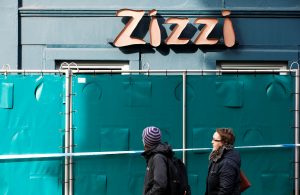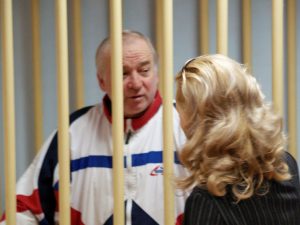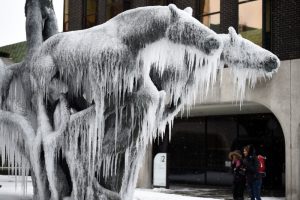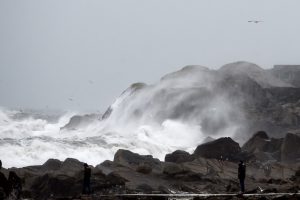
By Andrew Osborn and Christian Lowe
MOSCOW (Reuters) – Russian President Vladimir Putin basked in his biggest ever election victory on Monday, extending his rule over the world’s largest country for another six years at a time when his ties with the West are on a hostile trajectory.
Putin’s victory will take his political dominance of Russia to nearly a quarter of a century, until 2024, making him the longest ruler since Soviet dictator Josef Stalin. Putin, who will be 71 at the end of his term, has promised to beef up Russia’s defenses against the West and raise living standards.
In an outcome that was never in doubt, the Central Election Commission, with nearly 100 percent of the votes counted, announced that Putin, who has run Russia as president or prime minister since 1999, had won 76.68 percent of the vote.
With more than 56 million votes, it was Putin’s biggest ever win and the largest by any post-Soviet Russian leader.
In a late-night victory speech near Red Square, Putin told a cheering crowd the win was a vote of confidence in what he had achieved in tough conditions.
“It’s very important to maintain this unity,” said Putin, before leading the crowd in repeated chants of “Russia! Russia!”
Backed by state TV and the ruling party, and credited with an approval rating around 80 percent, he faced no credible threat from a field of seven challengers.
His nearest rival, Communist Party candidate Pavel Grudinin, won 11.8 percent while nationalist Vladimir Zhirinovsky got 5.6 percent. His most vocal opponent, anti-corruption campaigner Alexei Navalny, was barred from running.
Critics alleged that officials had compelled people to come to the polls to ensure that boredom with the one-sided contest did not lead to low participation.
“NO SERIOUS COMPLAINTS”
Near-final figures put turnout at 67.47 percent, just shy of the 70 percent the Kremlin was reported to have been aiming for before the vote.
The Central Election Commission said on Monday morning that it had not registered any serious complaints of violations. Putin loyalists said the result was a vindication of his tough stance toward the West.
“I think that in the United States and Britain they’ve understood they cannot influence our elections,” Igor Morozov, a member of the upper house of parliament, said on state television.
Kremlin spokesman Dmitry Peskov played down suggestions on Monday that tensions with the West had boosted turnout, saying the result showed that people were united behind Putin’s plans to develop Russia.
He said Putin would spend the day fielding calls of congratulation, meeting supporters, and holding talks with the losing candidates.
Chinese President Xi Jinping was among the first to offer his congratulations to Putin, but Heiko Maas, Germany’s new foreign minister, questioned whether there had been fair political competition.
Opposition leader Navalny is expected to call for protests demanding a re-run of an election that he says was neither free nor fair. International observers were due to give their verdict later on Monday.
The longer-term question is whether Putin will now soften his anti-Western rhetoric.
His bellicose language reached a crescendo in a state-of-the-nation speech before the election when he unveiled new nuclear weapons, saying they could strike almost any point in the world..
AT ODDS WITH THE WEST
Russia is currently at odds with the West over Syria, Ukraine; allegations of cyber attacks and meddling in foreign elections; and the poisoning in Britain of a former Russian spy and his daughter. As a result, relations with the West have hit a post-Cold-War low.
Britain and Russia are locked in a diplomatic dispute over the poisoning, and Washington is eyeing new sanctions on Moscow over allegations that it interfered in the 2016 U.S. presidential election, which Russia denies.
Putin said late on Sunday it was nonsense to think that Russia would have poisoned the former spy, Sergei Skripal, and his daughter in Britain, and said Moscow was ready to cooperate with London.
How long Putin wants to stay in power is uncertain.
The constitution limits the president to two successive terms, obliging him to step down at the end of his new mandate.
Asked after his re-election if he would run for yet another term in the future, Putin laughed off the idea.
“Let’s count. What, do you think I will sit (in power) until I’m 100 years old?” he said, calling the question “funny”.
Although Putin has six years to consider a possible successor, uncertainty about his future is a potential source of instability in a fractious ruling elite that only he can keep in check.
“The longer he stays in power, the harder it will be to exit,” said Andrei Kolesnikov, senior fellow at the Carnegie Moscow Center, a think tank. “How can he abandon such a complicated system, which is essentially his personal project?”
(Restores dropped ‘it’ in paragraph 11, cuts extraneous word ‘calls’ in paragraph 14.)
(Additional reporting by Denis Pinchuk and Maria Kiselyova, Reuters reporters in Russia, and Ben Blanchard in Beijing; Writing by Andrew Osborn; Editing by Peter Graff and Kevin Liffey)












